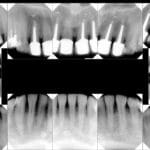Decontaminating Danger: The Legacy of the “Silkwood Shower”
The phrase “Silkwood shower” often evokes images of intense cleansing, but its origins lie in a tragic true story. This specialized shower, designed to scrub away hazardous substances, became intrinsically linked with Karen Silkwood, a nuclear plant worker turned whistleblower in the 1970s. Her fight for workplace safety and the mysterious circumstances surrounding her death sparked a national conversation, forever etching the “Silkwood shower” into our collective vocabulary.
The Woman Behind the Term: Karen Silkwood’s Fight for Justice
Karen Silkwood, a young mother working at Oklahoma’s Kerr-McGee Cimarron Fuel Fabrication Site, became increasingly concerned about lax safety practices. In 1974, she discovered she had been contaminated with plutonium, a radioactive element with severe health risks. Though the circumstances remain murky, this discovery fueled her dedication to exposing the plant’s negligence.
Silkwood’s activism put her at odds with Kerr-McGee, and the situation took a tragic turn when she died in a car crash while en route to meet a reporter. Though officially ruled an accident, many believe foul play was involved, suggesting a deliberate attempt to silence her.
“Silkwood”: The Film That Ignited a Movement
The 1983 film “Silkwood,” starring Meryl Streep, brought Silkwood’s story to life, depicting her transformation from concerned employee to outspoken advocate. One of the film’s most enduring legacies is its portrayal of the decontamination process Silkwood endured after her plutonium exposure. This harrowing scene, etched in viewers’ minds as the “Silkwood shower,” became synonymous with the fear of unseen contamination and the desperate struggle to cleanse oneself from invisible threats.
The “Silkwood Shower” Today: Significance and Enduring Relevance
While the film thrust the term into the spotlight, the “Silkwood shower” represents a very real procedure still used in various industries. Beyond its practical application in nuclear facilities and emergency response situations, the phrase has transcended its industrial origins, becoming a cultural shorthand for any rigorous cleansing process, often imbued with a sense of urgency and unease.
- Industrial Settings: “Silkwood showers” remain crucial in industries handling hazardous materials, signifying a necessary – though often anxiety-inducing – safety measure.
- Emergency Response: These specialized showers are deployed after chemical spills, biological incidents, or other events requiring immediate decontamination.
- Metaphorical Use: The “Silkwood shower” has come to represent the act of purging oneself – physically or emotionally – from something harmful or undesirable.
It’s a chilling reminder that even in an age of technological advancement, the dangers Silkwood fought against remain. Her story compels us to question safety protocols, hold corporations accountable, and recognize the bravery of individuals who speak truth to power, even in the face of danger.
Where Reality Meets Reel Life: Filming “Silkwood”
To capture the essence of Karen Silkwood’s story, the filmmakers behind “Silkwood” opted for authenticity, shooting on location in New Mexico and Texas. From September 7 to November 26, 1982, these locations were transformed into backdrops that mirrored the environments where Silkwood lived and worked.
New Mexico:
- Albuquerque: Provided an urban setting for key scenes.
- Los Alamos: Known for its ties to nuclear research, lending an air of realism to scenes depicting the industry.
Texas:
- Dallas: Served as the backdrop for corporate boardroom scenes and union meetings.
- Howe: This small town provided the setting for intense courtroom sequences.
- Texas City: Home to oil refineries, mirroring the industrial landscape of Silkwood’s work environment.
- Tom Bean: This rural town offered a stark contrast, depicting the exterior of Silkwood’s home.
By filming in real-world locations, “Silkwood” blurred the lines between Hollywood drama and the disturbing reality of Silkwood’s fight for justice. These carefully chosen settings became more than backdrops; they became characters themselves, amplifying the film’s message and impact.
The Unanswered Questions: How Did Karen Silkwood Get Contaminated?
Despite numerous investigations and a high-profile lawsuit, the incidents surrounding Karen Silkwood’s plutonium contamination remain shrouded in mystery. On July 31, 1974, Silkwood, then a vocal advocate for worker safety at the Kerr-McGee plant, tested positive for plutonium exposure. While some experts suggest faulty equipment or accidental exposure as possible explanations, others believe deliberate contamination cannot be ruled out.
Adding to the intrigue, Silkwood’s apartment also tested positive for plutonium, raising more questions than answers. Was she targeted? Were safety protocols so lax that contamination spread beyond the workplace? These questions, coupled with the suspicious circumstances surrounding her death, continue to fuel speculation and conspiracy theories.
Kerr-McGee’s stance: The company maintained that Silkwood intentionally contaminated herself to damage their reputation. However, this claim has been widely disputed, and no conclusive evidence supports this theory.
The Silkwood family lawsuit: Silkwood’s family filed a lawsuit against Kerr-McGee, alleging negligence and unsafe working conditions that led to her contamination and death. The case was initially won by the family with a $10.5 million judgment, but it was later settled out of court for $1.38 million.
While the settlement provided some financial recompense, it did little to quell the lingering questions surrounding Silkwood’s case. The lack of definitive answers, coupled with the potential implications for worker safety and corporate accountability, ensures that Karen Silkwood’s story will continue to captivate and intrigue for years to come.
darwin amazing word of gumball death









